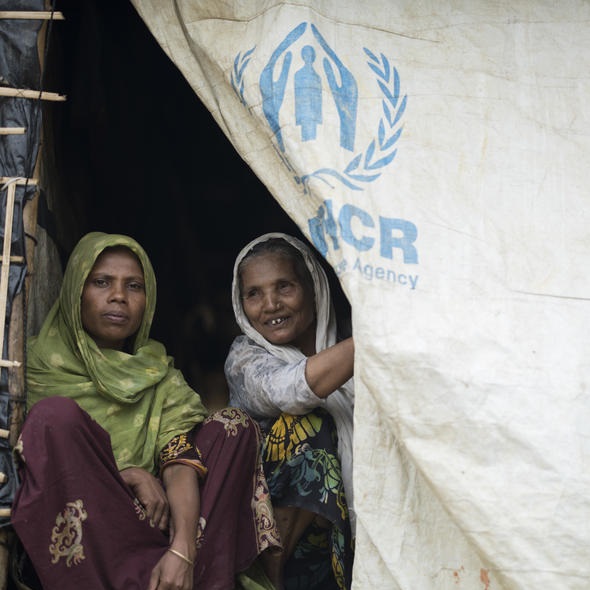Post-Distribution Monitoring of Cash-Based Intervention, November 2020
Pakistan, 2020
Get MicrodataIdentification
UNHCR_PAK_2021_CBI_PDM
Post-Distribution Monitoring of Cash-Based Intervention, November 2020
| Name | Country code |
|---|---|
| Pakistan | PAK |
THE CBI PDM Household Survey was conducted in Pakistan in November, 2020. UNCHR Pakistan has always been at the front line of dealing with the Afghan refugee crisis. In the wake of Covid-19 pandemic and its far lasting financial impacts, UNHCR Pakistan has rolled out an Emergency Cash Assistance Program to help refugees meet their basic needs and to mitigate harsh socio-economic impacts in the time of crises and countrywide lockdowns. UNHCR implemented a one-off emergency cash assistance to vulnerable refugee and asylum seeker families to help meet their basic needs including food, rent, and access to essential supplies and services. This large-scale cash distribution required an independent third-party post distribution monitoring (PDM) to confirm whether the beneficiaries have received their entitled cash payment and also to clarify the mode of utilization of cash, whether it has been shared, spent, or saved.
UNHCR uses Post-Distribution Monitoring (PDM) as a mechanism to collect refugees' feedback on the quality, sufficiency, utilization and effectiveness of the assistance items they receive. The underlying principle behind the process is linked to accountability, as well as a commitment to improve the quality and relevance of support provided, and related services. UNHCR increasingly uses Cash-Based Interventions (CBIs) as a preferred modality for delivering assistance, offering greater dignity and choice to forcibly displaced and stateless persons in line with UNHCR's core protection mandate. In order to ensure that the cash assistance provided meets the intended programme objectives and that desired outcomes are achieved, UNHCR conducts regular post-distribution and outcome monitoring with a sample or all of refugee recipients.
Sample survey data [ssd]
Households
Version
v2.1: Edited, anonymous dataset for licensed distribution.
Scope
The household survey covers the following sections:
- Household demographics
- Receiving and spending the cash assistance (basic facts)
- Risks and problems: Did people face problems with the CBI? Did the CBI put POCs at additional risk?
- Markets and prices: Can POCs find what they need, and at a price they can afford, in the markets?
- Expenditure: What did people spend the money on?
- Outcomes: What changes is the cash assistance contributing to in POC households?
- Longer-Term Outcomes: Has the cash assistance helped put POC on the pathway to sustainable solutions?
- Accountability to Affected Persons: Is the CBI intervention accountable to persons of concern? (What preferences do people have over how assistance is delivered?)
| Topic |
|---|
| Livelihood & Social cohesion |
| Cash Assistance |
| Domestic Needs/Household Support |
| Income Generation |
| Solutions |
| Basic Needs |
Coverage
The majority of the respondents were from Khyber Pakhtunkhwa, followed by Balochistan, Sindh and Punjab.
The total population spans all beneficiaries of Cash-Based Interventions.
Producers and sponsors
| Name |
|---|
| UNHCR |
Sampling
The survey's objective was to deliver representative data of all refugee households that were beneficiaries of cash-based interventions. The total number of beneficiaries of the Cash-Based Interventions is 70,000 (sampling frame). For this survey, a simple random sample design was applied. The total sample size was 320 refugee households, but only 180 respondents were reached and gave their consent to participate in the survey.
Across Pakistan, 320 household were called. Out of them, 180 households gave their consent to be part of the survey and successfully completed the questionnaire. Of the rest of 140 beneficiaries, it wasn't possible to reach 103 beneficiaries as their phone number was either powered off or the number was not responding. For 16 beneficiaries' wrong number was reported, along with 12 individuals, who denied having received any UNHCR cash assistance. Only three percent of the sample refused to be part of the survey.
Sample weights were calculated for each household as the total number of beneficiaries divided by the total sample size.
Data collection
| Start | End |
|---|---|
| 2020-11-04 | 2020-11-27 |
| Name |
|---|
| UNHCR |
Interviews were conducted with a sample of beneficiaries over the phone and verification of the beneficiaries through the name and ID number was mandatory. The data collector conducted structured household level interviews with the sampled beneficiaries, through call agents / enumerators. Answers were recorded on the paper based questionnaire and afterwards uploaded on UNHCR’s Kobo server. Several follow-up calls were conducted to reduce the non-response rate as close as possible to zero and replacement numbers were sampled when the person did not answer. Call agents were all Afghan Nationals (female and male), who speak Dari and Pashto to be able to communicate with respondents.
Data Access
| Name | Affiliation | |
|---|---|---|
| Curation Team | UNHCR | microdata@unhcr.org |
UNHCR (2021). Pakistan: Post-Distribution Monitoring of Cash-Based Intervention, November 2020. Accessed from: https://microdata.unhcr.org.
Metadata production
| Name |
|---|
| UNHCR |
2021
Metadata version
v1.0
